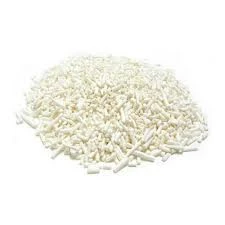
Organic Fertilizer - Sustainable Solutions for Healthy Soil
The Benefits of Organic Fertilizer
In recent years, the increasing awareness of environmental sustainability and health-conscious living has led to a significant rise in the use of organic fertilizers. Unlike conventional fertilizers that may contain synthetic chemicals, organic fertilizers are derived from natural sources such as plant matter, animal waste, and minerals. This article explores the numerous benefits of using organic fertilizers in agriculture and gardening.
First and foremost, organic fertilizers improve soil health. They enhance the soil structure, promote the growth of beneficial microorganisms, and increase the organic matter within the soil. This leads to improved aeration, better water retention, and enhanced nutrient availability. Healthy soil is the foundation of sustainable agriculture and plant growth, and organic fertilizers play a crucial role in maintaining it.
Another significant advantage of organic fertilizers is their environmental impact. Conventional fertilizers often lead to nitrogen runoff, which can pollute waterways and cause harmful algal blooms that disrupt aquatic ecosystems. Organic fertilizers, on the other hand, release nutrients slowly and steadily, reducing the risk of leaching and promoting nutrient retention in the soil. This not only protects water quality but also contributes to a balanced ecosystem.
organic fertilizer

Furthermore, the use of organic fertilizers can enhance crop quality and yield over time. While the initial application may result in slower nutrient release, the long-term benefits include increased soil fertility, which can improve crop resilience against pests and diseases. Healthy plants grown with organic fertilizers are often more nutritious, offering a better quality of produce for consumers. Additionally, organic farming practices have been shown to yield comparable or higher crop outputs in the long run when managed properly.
Organic fertilizers also contribute to sustainable agricultural practices. They facilitate nutrient cycling by returning organic matter to the soil and reducing dependency on synthetic inputs. This aligns with the principles of permaculture and regenerative agriculture, both of which prioritize harmony with the environment. Farmers can employ strategies like composting, cover cropping, and rotating livestock to produce their own organic fertilizers, fostering a more self-sustaining approach to farming.
Another noteworthy benefit of organic fertilizers is their safety. They are less likely to contain harmful chemicals that may pose risks to human health and the environment. This is particularly important for home gardeners who want to cultivate vegetables and fruits for their families without the worry of chemical residues.
In conclusion, organic fertilizers offer a multitude of benefits that contribute to healthier soils, environmentally friendly practices, and sustainable agriculture. As the world grapples with the challenges of food security and environmental degradation, integrating organic fertilizers into our farming systems presents a viable solution. By promoting organic farming, we not only support biodiversity and ecosystem health but also pave the way for a more sustainable relationship with the Earth. Embracing organic fertilizers is not just a choice but a step toward a better future for our planet.
-
nitrile-rubber-honoring-strict-production-standardsNewsAug.22,2025
-
aspartame-ingredients-honoring-food-safety-valuesNewsAug.22,2025
-
fertilizer-for-balanced-plant-nutritionNewsAug.22,2025
-
cyanide-gold-processing-with-high-purity-additivesNewsAug.22,2025
-
formic-acid-in-textile-dyeing-applicationsNewsAug.22,2025
-
aluminum-hydroxide-gel-in-skincare-productsNewsAug.22,2025
-
Regulatory Compliance for Global Mining Chemicals UseNewsAug.12,2025
Hebei Tenger Chemical Technology Co., Ltd. focuses on the chemical industry and is committed to the export service of chemical raw materials.
-

view more DiethanolisopropanolamineIn the ever-growing field of chemical solutions, diethanolisopropanolamine (DEIPA) stands out as a versatile and important compound. Due to its unique chemical structure and properties, DEIPA is of interest to various industries including construction, personal care, and agriculture. -

view more TriisopropanolamineTriisopropanolamine (TIPA) alkanol amine substance, is a kind of alcohol amine compound with amino and alcohol hydroxyl, and because of its molecules contains both amino and hydroxyl. -

view more Tetramethyl Thiuram DisulfideTetramethyl thiuram disulfide, also known as TMTD, is a white to light-yellow powder with a distinct sulfur-like odor. It is soluble in organic solvents such as benzene, acetone, and ethyl acetate, making it highly versatile for use in different formulations. TMTD is known for its excellent vulcanization acceleration properties, which makes it a key ingredient in the production of rubber products. Additionally, it acts as an effective fungicide and bactericide, making it valuable in agricultural applications. Its high purity and stability ensure consistent performance, making it a preferred choice for manufacturers across various industries.





